Prep
Week 3, Term 3

Prep
Week 3, Term 3
INFORMATION
🌈 100 Days Brighter - Celebration Day TODAY!
Remember to wear bright colours and bring a small plate of food to share!
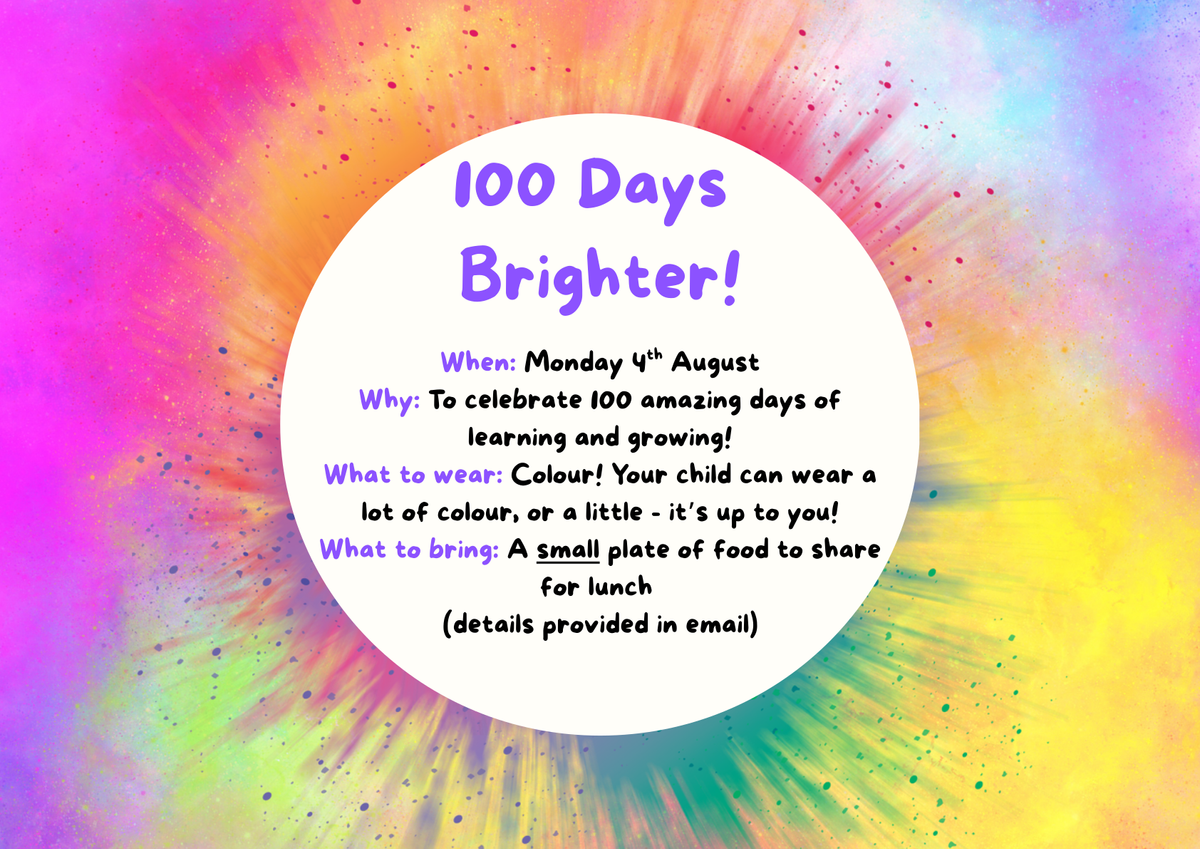

🎭 Matilda Jr.
In your child’s Showbie account, you’ll find a pink folder labelled 'Costume Photo – Matilda Jr.' To help ensure that every Prep student has a suitable costume for the show, Tim and Kristy kindly ask that you upload a photo of your child wearing their costume to this folder as soon as possible. Thank you for your support in helping us get everything ready for a fantastic performance!
🎨 Specialist timetable - updated for Term 3
**Please note - Prep A and Prep C have new library days
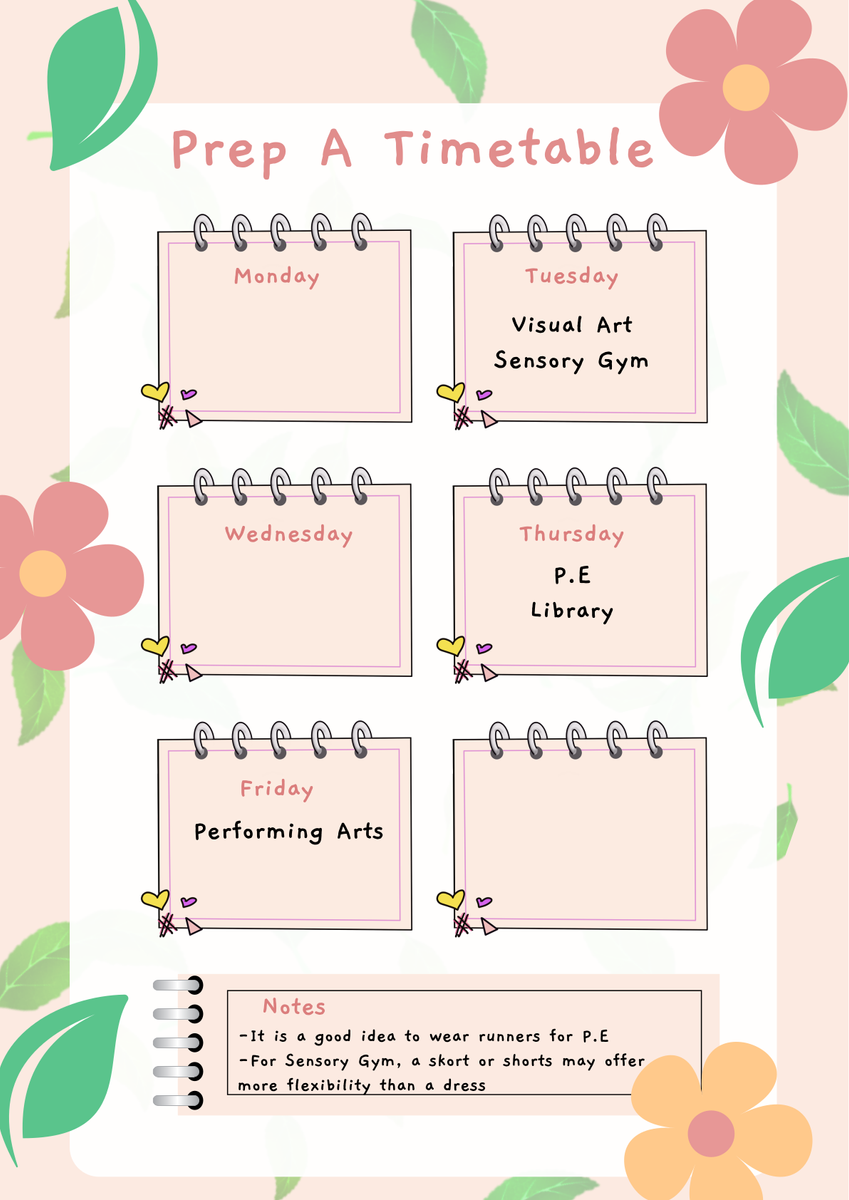
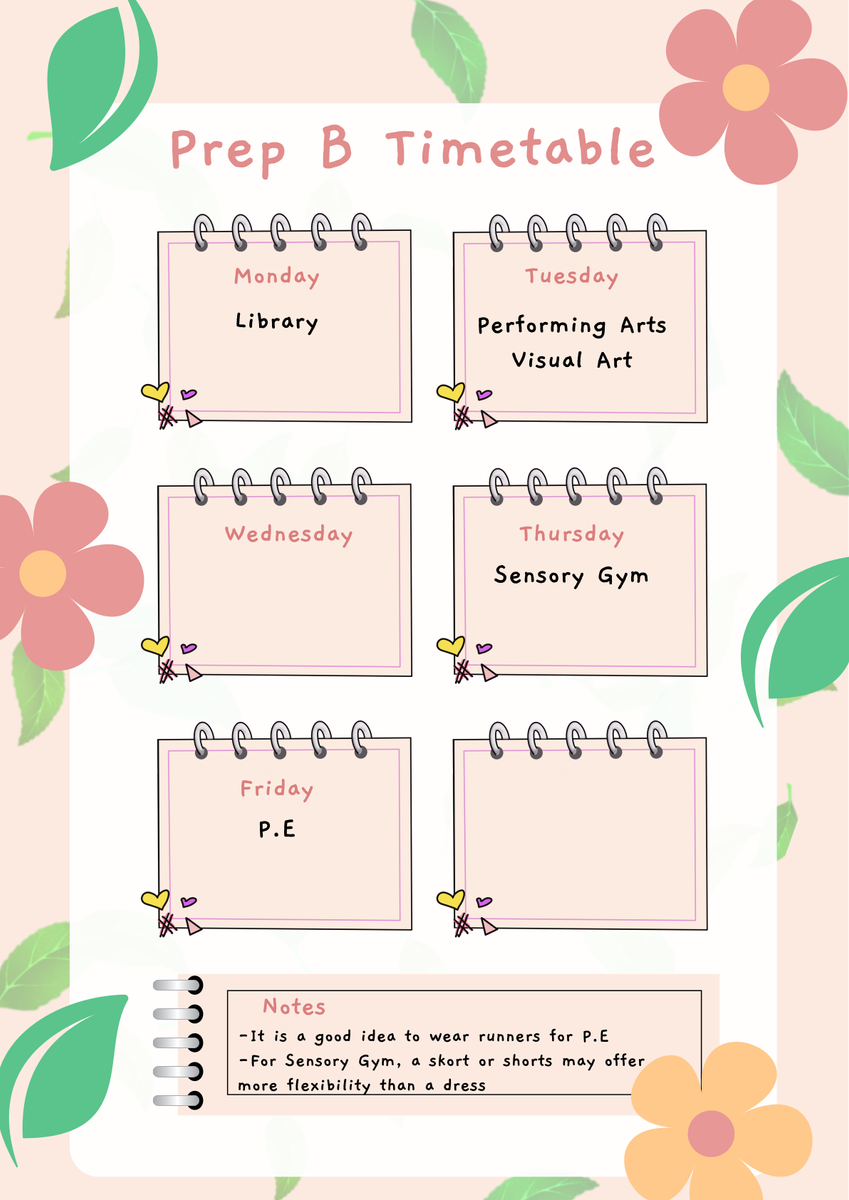
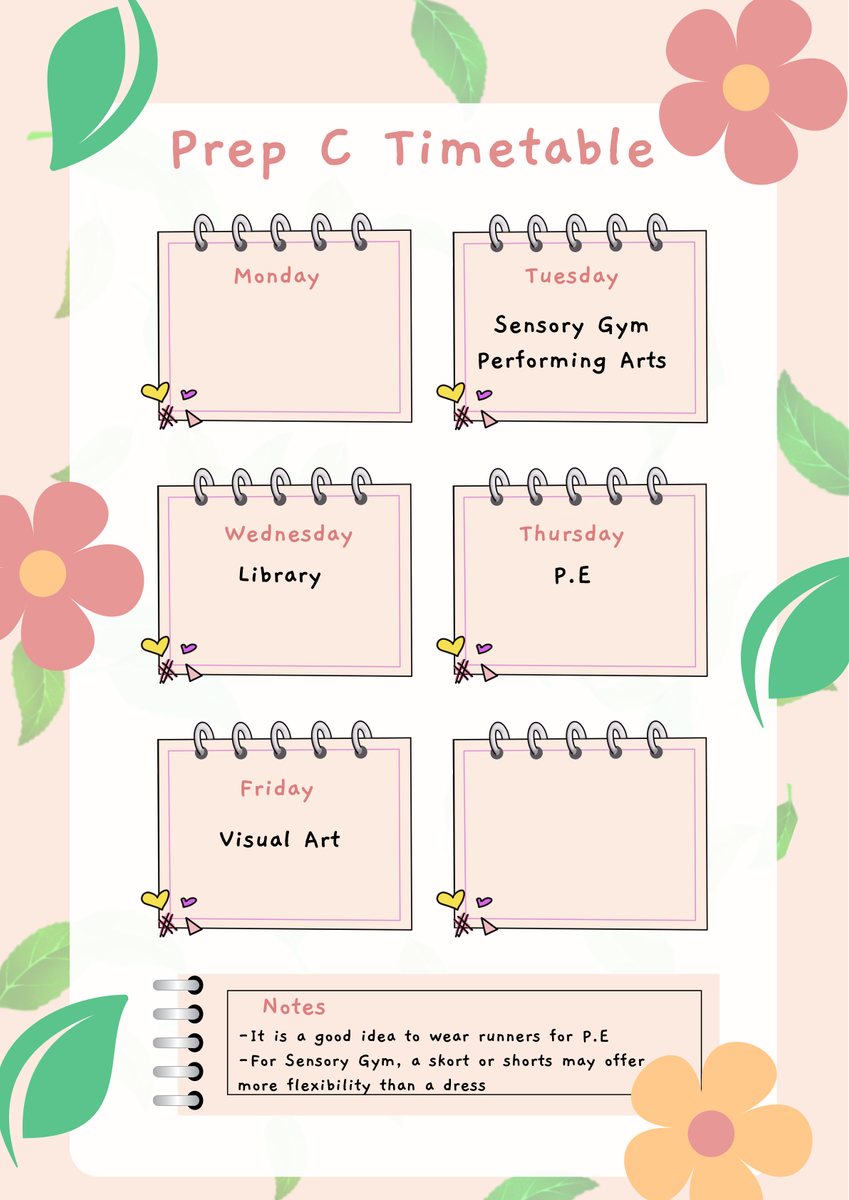



CURRICULUM
📚 Phonemic awareness: reading and phonics
We will be reviewing the short vowel sound of E and then doing a mixed vowel review, before moving on to new concepts next week.
We’ll focus on:
• Revising the phonemes (the sounds the letters make)
• Practising the graphemes (how we write the letters with correct formation)
• Using the matching cued articulation actions to support sound recognition.
• Reading longer words (CVCC/CCVC words) like next and stop.
We’ll also revise the Heart Words: look, book, are, was, you, what and have
What can you do at home?
• Help your child read the take-home book, decodable passages, CVC words and Heart Words from their book pocket. Aim for fluency by the second day of reading.
As your child reads, encourage them to recognise familiar words instantly and only sound out unfamiliar ones.
• Enjoy bedtime stories together to build vocabulary, comprehension, and a love of reading.
• If you're interested in learning more about Cued Articulation, you can watch this helpful video by Jane Passey (the founder), where she explains and demonstrates each sound: Cued Articulation with Jane Passey
• Work through the optional UFLI home pages if you’d like some extra phonics practise at home.
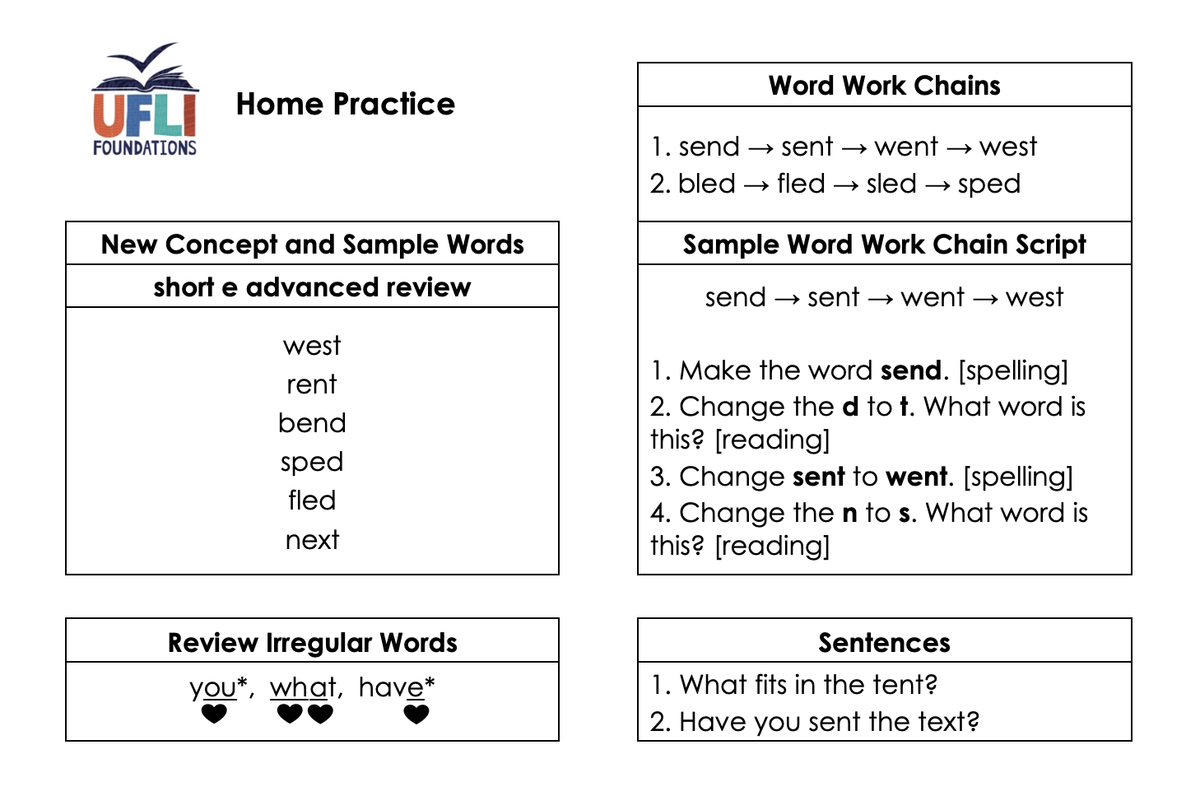
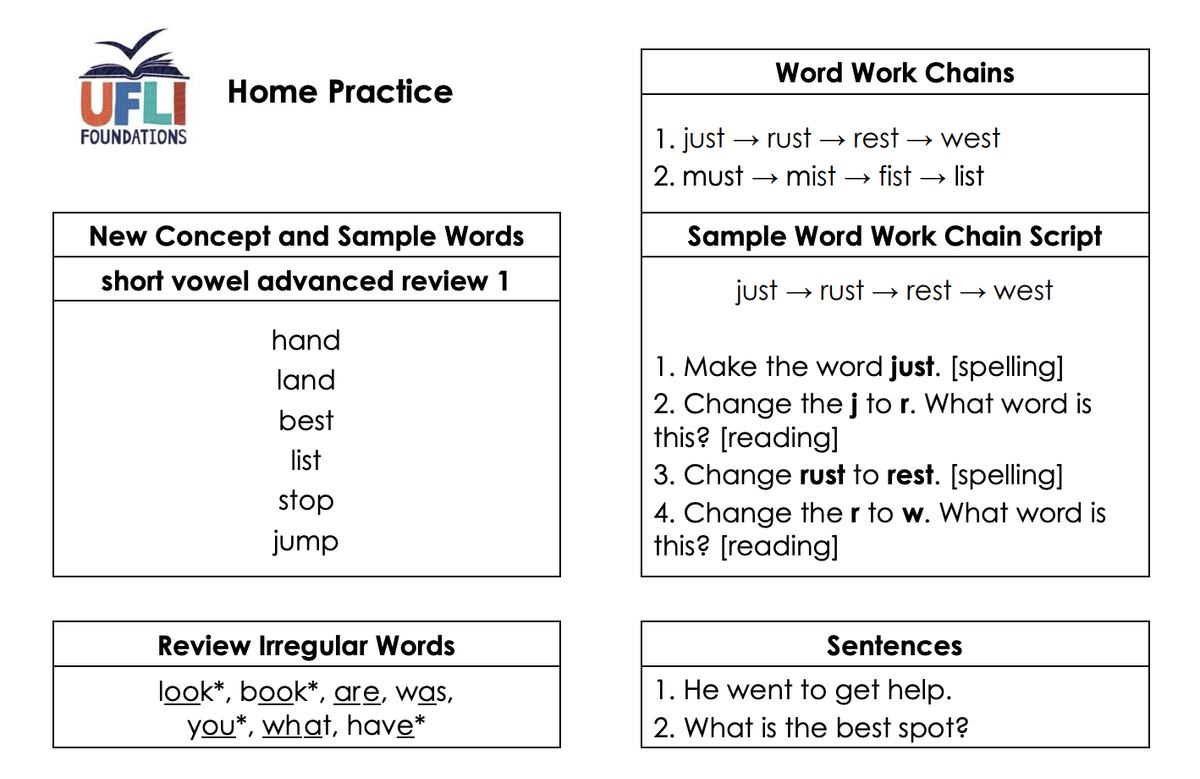


📝 Literature: reading responses and writing
Students are being introduced to the features of non-fiction texts as they begin learning about the history of Wonga Park. Since there isn’t an age-appropriate book about Wonga Park’s past during the gold rush and settlement, we are very fortunate that Jocelyn Hollyman is writing a special text just for our students! Through this text, students will explore important non-fiction features such as titles, tables of contents, captions and diagrams. They will learn about Simon Wonga, the early use of the land for cattle stations and orchards and what life was like in Wonga Park many years ago. Throughout the week, students will document their learning by creating their very own non-fiction book, which they will bring home to share their new knowledge with you.
Students will continue developing their skills as independent writers by revising the correct formation of the letter E and reviewing all the vowels, with a focus on building fluency and consistency in their handwriting. During our mentor text lessons, students will engage in writing tasks that encourage them to create non-fiction statements about what they have learned, helping them practise clear and purposeful writing while consolidating their understanding of factual texts.
What can you do at home?
• Practise writing all the vowels, especially E, focusing on correct starting points and smooth movements.
• Look for nouns and verbs in books or around the house. Ask your child to name a noun (like 'dog') and a matching verb (like 'runs'), then try putting them together in a simple sentence.
• After reading a book together, ask your child to tell you or write down one fact they learned or something they found interesting.
• Play simple sentence-building games - give your child a noun and ask them to think of a verb to go with it, or vice versa.
• Practise writing the Heart Words, taking care to notice the tricky 'heart' parts in the word.
🔢 Maths
Students will continue developing their understanding of addition and subtraction. They will practise counting the total on a number track within ten and learn how to subtract numbers within ten using a number track as a visual support. To finish the unit, students will complete a short assessment to demonstrate their understanding of the concepts covered throughout this learning sequence.
What can you do at home?
• Use everyday objects (like snacks, toys, or blocks) to act out simple take-away stories - e.g. “You had 7 grapes and ate 3. How many are left?”
• Practise counting to find the difference between two numbers using objects, fingers, or counting aloud.
• Play games like dice subtraction - roll two dice, subtract the smaller number from the larger and say or write the number sentence.
• Talk about real-life subtraction situations (e.g. “We had 6 apples and now there are 2 - how many have been eaten?”)
🌏 CBL - Change
Due to the shorter week with our 100 Days Brighter celebrations and gymnastics, students will complete the majority of their learning during Mentor Text sessions, using the non-fiction text about the history of Wonga Park. Through this learning, they will explore the guided question: 'Before our school was here, what was the Wonga Park area like?', helping them to build a deeper understanding of the local area's past.
Throughout the term, all students will be contributing to a special project - a 'Journey Back in Time' video, where we will explore how Wonga Park has changed over the years. Each week, we will add a new section to our timeline within the video, gradually building a story of the area’s rich history. We have already begun with Aboriginal history and the Gold Rush, and we are excited to continue adding to our time machine each week. We can’t wait to share the finished project with you at the end of the term!
🫶🏼 Respectful Relationships
Students are learning about Positive Coping - Managing Emotions. In this session, they will learn about self-calming and self-cheering strategies to help them manage strong emotions in positive and healthy ways. Students will explore simple techniques they can use when they are feeling upset, frustrated or nervous, supporting their emotional awareness and developing important self-regulation skills.
💛 School Wide Positive Behaviour (SWPBS)
As we begin the new term, we will continue to review our SWPBS expectations: Be Kind, Be Safe, Be a Learner. These expectations are at the heart of our school culture and help create a positive and supportive environment for all students.